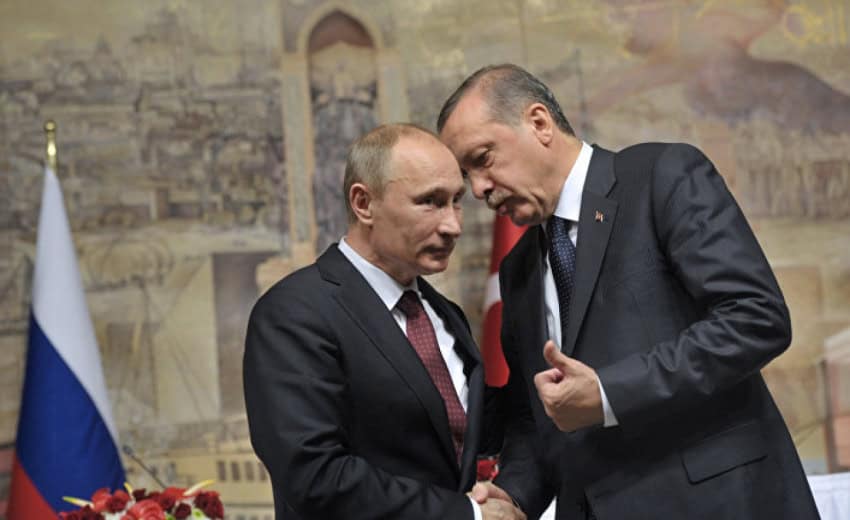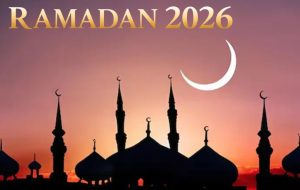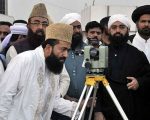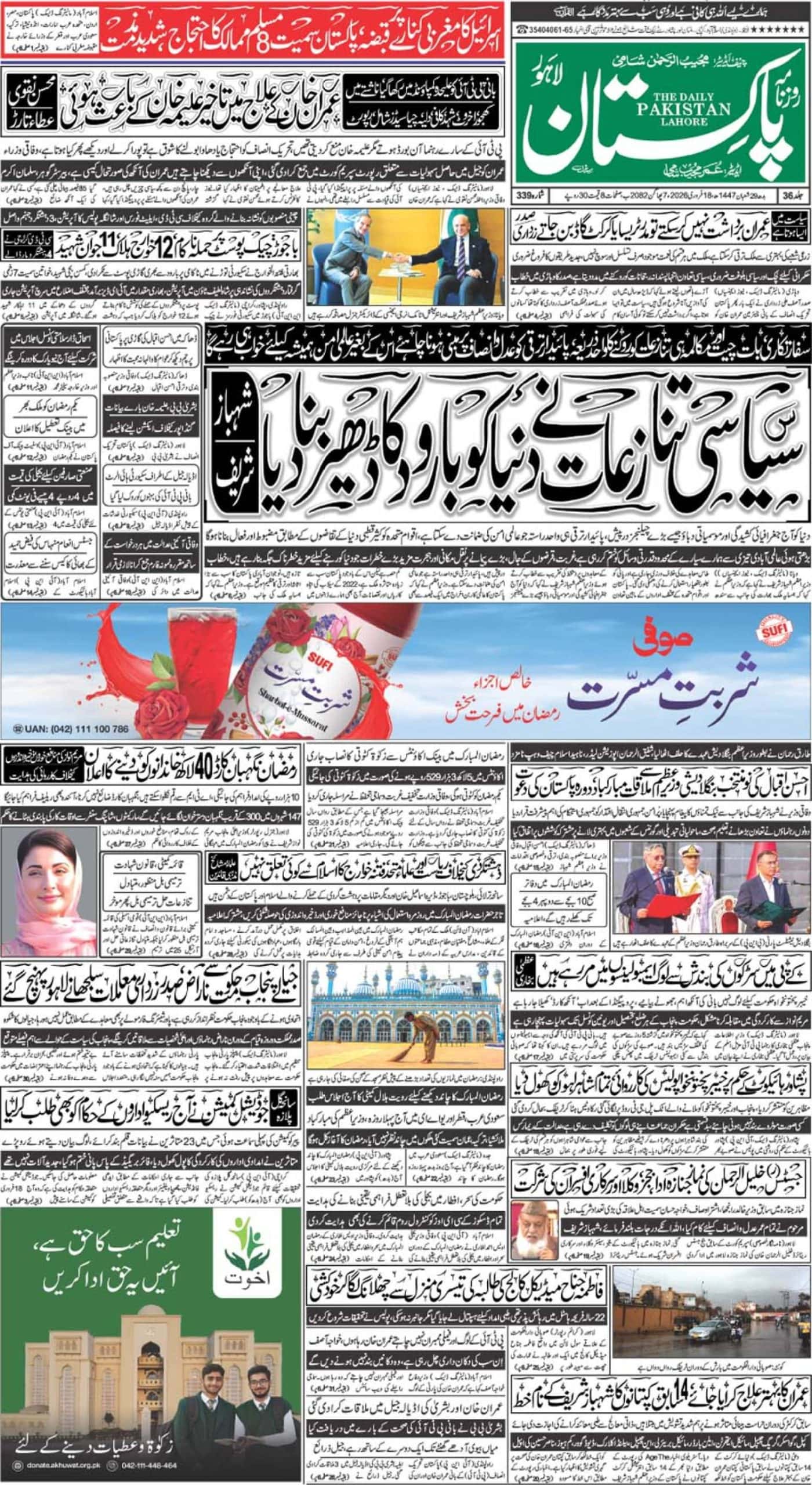ANKARA – The brutal assassination of the Russian envoy in Turkish capital Ankara is being presumed to be an unexpected outcome of Russia-Turkey efforts for the solution of Syria crisis.
The attack that took the life of Andrei Karlov came just one day before the Russians were due to host Turkey and Iran’s foreign ministers in Moscow to discuss the evacuation of civilians from the recently retaken areas of eastern Aleppo, which were held by Syrian rebels until just a few days ago.
This very unity of purpose between Russia and Turkey appears to have been behind the cowardly attack in an Ankara art gallery by a 22-year-old Turkish riot squad police officer.
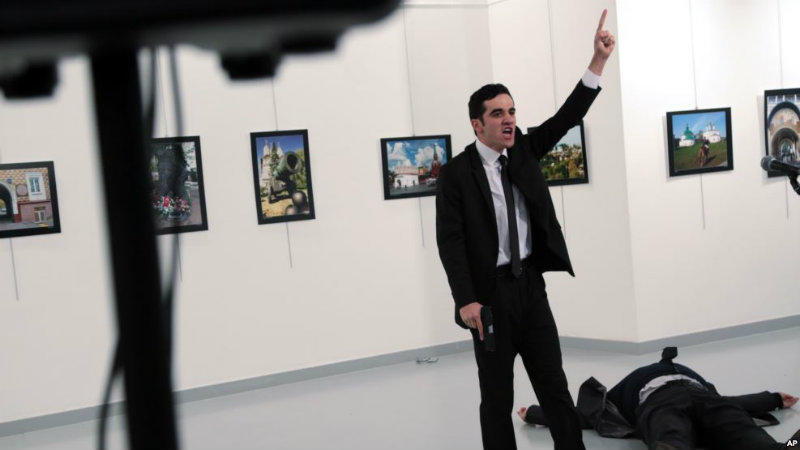
Russian President Vladimir Putin also said on Monday that the killing of Russia’s ambassador to Turkey was a despicable provocation aimed at derailing the process of the solution of Syria crisis.
To understand the events shaping Monday’s killing of Russian envoy at an Ankara art gallery, one would need to take a closer look at the relations between Turkey and Russia, particularly in connection with the Syria conflict.
‘Assad’s atrocities’
It might seem reasonable to assume that Mevlüt Mert Altıntaş, the Turkish policeman who assassinated Ambassador Andrei Karlov, was a supporter of those who have died at the hands of Syrian President Bashar Assad’s forces, which now control the benighted Syrian city.
Assad’s victory in Syria is primarily due to the support of Iran that in turn operates under Russian air cover. But it is the role of Turkey alongside that trio of allied nations which is key to understanding the blood-soaked events in Ankara last night.
Earlier in the five-year Syrian civil war Turkish president Recep Tayyip Erdogan sided with the rebel groups who were attempting to topple Assad. Erdogan clearly asked Assad to stand down.
Turkey even hosted the political leaders of the rebels and allowed armed groups (including Islamic State) to move recruits and supplies over the border into Syria. Turkey also refused to allow Nato, of which it is a member, to use nearby Incirlik airfield as a base from which to bomb IS.
Russia’s entry into the Syrian civil war in support of its ally Assad complicated Turkey’s position, because the two nations have a long-standing relationship with each other. They have fought 12 wars, all of which the Turks lost. Erdogan is a strongman and was determined not to allow Vladimir Putin to ride roughshod over his corner of the Middle East.
‘Putin and Erdogan’
For that reason, in November 2015 a Turkish fighter shot down a Russian Sukhoi 24 jet after it crossed into Turkish airspace for all of 17 seconds. One crew member was shot dead while descending by parachute. The second was captured by Ankara’s ‘Turkmen’ allies in Syria, though he subsequently escaped and was rescued.
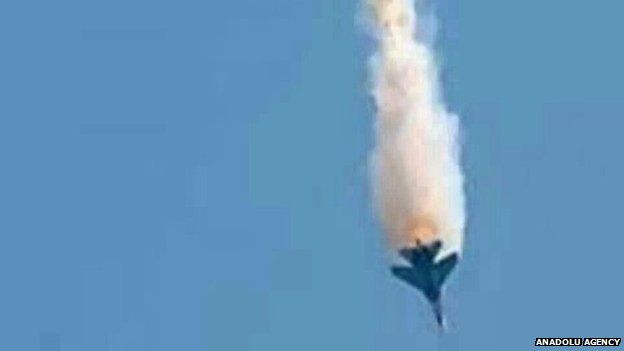
In a vengeful mood, President Putin ordered economic sanctions on Turkey, which depends heavily on Russian natural gas supplies, and bombarded the Turkmen with missiles. Erdogan, he said, was a patron of terrorists.
Yet after several months of tension, Russia-Turkey relations recovered – which may well be one of the reasons behind last night’s assassination.
‘Kurd factor’
And there’s always the Kurd factor. Apart from nearly being overthrown by a coup last July, Erdogan faces a massive threat from the Kurds, which are the world’s largest ethnic group (35 million people) without a state of their own. Their populations straddle Iran, Iraq, Syria and Turkey, where they number 14.5 million. In northern Iraq, the Kurds have carved out an autonomous state – Kurdistan – which in almost every sense is independent of the Arab government in Baghdad, and their army, the Peshmerga have fought valiantly against IS.
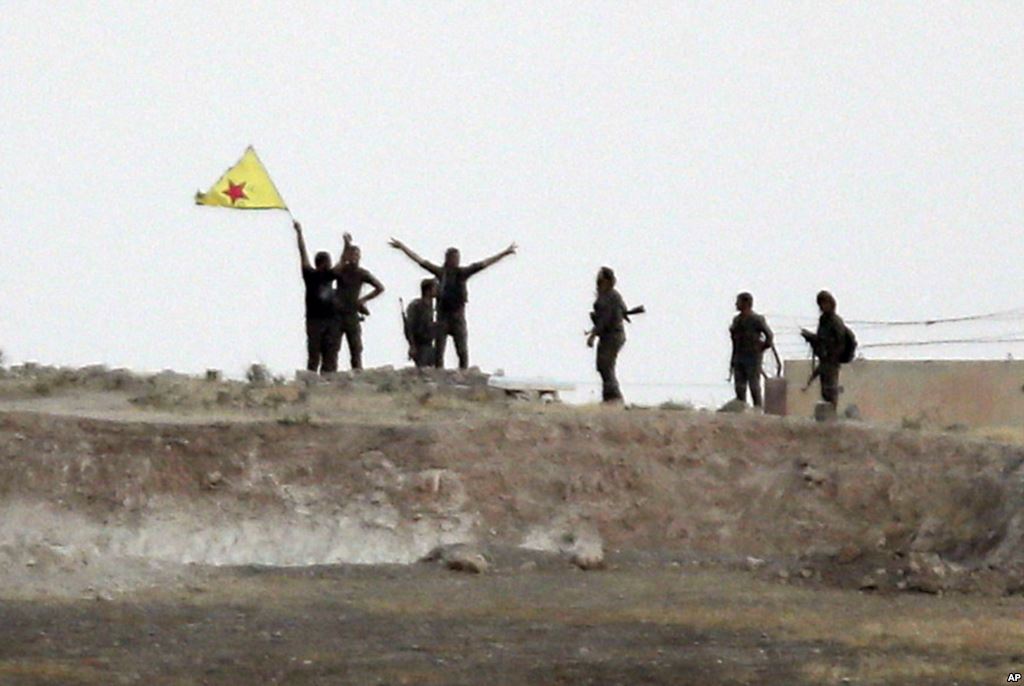
Erdogan – constantly at war with the Kurdish separatists who have been repressed in Turkey for decades – will do almost anything to stop that happening. He does not want the Kurds in Turkey to coalesce with their kinsmen in Syria and Iraq. If that happens, a chunk of Turkey could disappear.
To thwart the Kurds, Erdogan has troops operating in northern Syria – and in order to guarantee them freedom to deploy as he wishes, he has had to strike a deal with Moscow. He promised Putin he would stop calling for Assad to step down, in exchange for Russia allowing Turkish troops to do largely as they wish.
This deal has infuriated Kurd militants, who felt betrayed by it. If they are behind the murder of the Russian ambassador then they have chosen a soft target whose death they will regard as some small revenge for the many thousands who have been slaughtered in Aleppo and elsewhere by Assad and his allies.
There have been angry demonstrations outside Russian diplomatic missions in Turkey after the bloody denouement in Aleppo, so it is likely the Turkish killer felt angry about the Russian role in Aleppo, as well as a sense of betrayal by his own president’s friendly dealings with Putin.
The one reassuring element in all this is that the ambassador’s death should not turn into a spark – like the killing of Archduke Ferdinand in 1914, which led to the First World War – that sets off a wider conflagration between East and West.
‘Western plots or Islamic State’
For now, Russia has predictably blamed unnamed Western intelligence agencies. On the other hand, Turkish authorities haven’t ruled out radical Gulen movement behind the assassination plot.
The Turkish authorities have acted to crush what they call the Gulenist Terror Organisation FETO. The government says Gulen, who has lived in self-imposed exile in the U.S. state of Pennsylvania since 1999, created a ‘parallel network’ in the police, military, judiciary and civil service aimed at overthrowing the state. Gulen denies this.
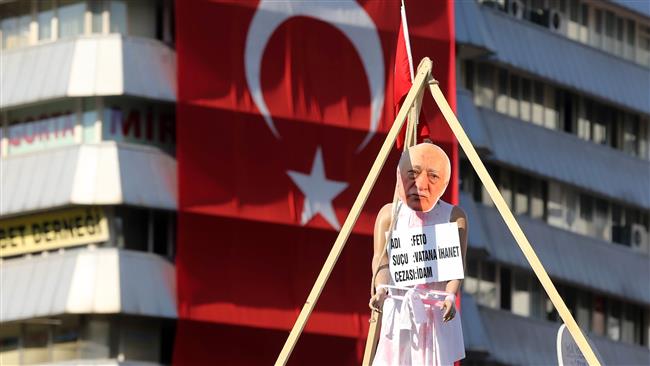
On Tuesday, prominent newspaper linked the assassination to the group. ‘An attack on friendship by treacherous FETO,’ said Sabah daily. ‘A bullet from FETO,’ added the Star daily.
But the Gulen movement has refuted any connection, media representative Alp Aslandogan said the exiled cleric condemned the murder as a ‘heinous act’.
It is possible, of course, that Islamic State had a hand in the assassination, sensing that Russia and Iran were about to join the forces massing against them once Donald Trump, who has promised to crush IS, is in the White House.
Certainly, IS seems to be doing all it can to sow fear and discord across Europe. An hour after the ambassador was killed in Ankara, a lorry was driven into a crowd at a Christmas market in Berlin.
It may be the two events yesterday are unrelated, as the Russians have already stressed Russo-Turkish relations will not suffer, we can only hope that the relations between two countries stay warm, at least for bringing back peace in Syria.

